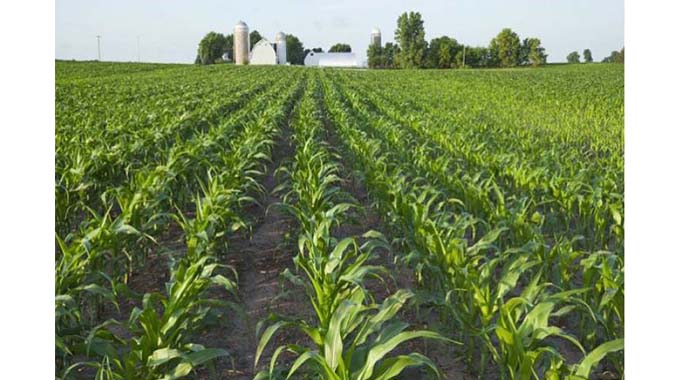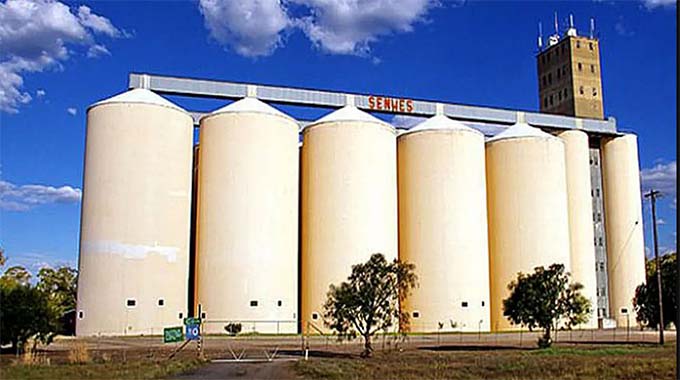Half of A1,A2 farmers not submitting returns: Government

Patrick Chitumba, Midlands Bureau Chief
MORE than 50 percent of A1 and A2 farmers in the country are not submitting their annual production returns, a move that is affecting the Government’s policy decisions in terms of maximising land utilisation. This was revealed by the Lands,Agriculture, Fisheries, Water and Rural Development Permanent Secretary Dr John Basera during the Zimbabwe Farmers Union (ZFU) 82nd annual congress in Gweru on Wednesday.

Lands, Agriculture, Fisheries, Water, Climate and Rural Development Permanent Secretary Dr John Basera
With the Government under the Second Republic pushing the production and productivity philosophy, land beneficiaries who are not using their land risk losing it for reallocation to youths and women. Early this year, Government issued a directive for A1 and A2 farmers to submit annual production reports by February 15 of every year, in a move calculated to ensure maximum land utilisation and identifying underutilised farms for repossession and redistribution.
The move comes as a monitoring tool for the Government to keep abreast with production trends on the land it gave out to over 300 000 families under A1 (commercial) and A2 (small-scale) models during the land reform programme implemented at the turn of the millennium. At least 18 000 families got resettled as A2 farmers with 360 000 benefiting under the A1 model and over 200 000 are on the land allocation waiting list. In pursuit of Vision 2030, through the National Development Strategy 1 (NDS1), the Government is transforming the agriculture sector by making farming a business, while leaving no household, no village and no youth behind.
Addressing farmers, seed and fertilisers manufacturers and distributors and Government officials attending the event, Dr John Basera urged farmers to take the production and productivity forms seriously.
“Land has become a major economic enabler and agriculture has become a business. The Ministry of Lands, Agriculture, Fisheries, Water and Rural Development directed all A1 and A2 farmers to submit annual production and productivity forms by 15 February each year. The new A2 permit conditions also compel all A2 farmers to provide such returns,” he said.
“However, it is disheartening to note that about 51 percent of the farmers are not submitting their annual production and productivity returns, which affects the Government’s policies aimed at maximising land utilisation.”
Dr Basera said the information gathered through the production forms will assist the Government in the identification of multiple land owners, abandoned farms, derelict farms and underutilised farms.
“This is all aimed at making farming a business model and it takes away those who acquired land for speculative reasons from the productive ones who are fully utilising their farms either on a small or large scale. If there is production we will support the farmer,” he said.
Dr Basera said the submission of the production and productivity forms also benefits the individual farmers as the Government, using the provided data, can look for suitable joint ventures for the farmer.
He said the Government encourages joint ventures on unproductive land. Under the Second Republic, the Government approved a joint venture agreement framework which allows investors to undertake farming operations with its consent.
“If farmers submit their forms, we will have a database that we will bring together with the joint venture database, for the purpose of match-making available underutilised and unproductive land units with potential joint venture partners,” said Dr Basera.
“This is possible when we have data from the farmers through the submission of production and productivity forms.”

Grain Marketing Board
Meanwhile, Dr Basera said the Government doesn’t have controlling stake in the Cotton Company of Zimbabwe (Cottco). He said the Government, which has 37,5 percent shares in the company, is working towards increasing its shareholding. “We have no controlling stake in Cottco and what we want to do is to increase shareholding in Cottco so that we own it and have a big say.
For example, we own GMB and it”s you, the farmers who own it,” he said.“We want a controlling stake so that we are in charge and set processes like we do at GMB. Yes, we are aware that a lot of farmers are owned by Cottco, and if we own it, we will be able to pay in time like we do at GMB.”
Dr Basera urged contract farmers to desist from rushing into signing agreements with seed companies and banks without taking into account interest rates and other conditions attached to them.
“We hear of farmers crying foul after signing contracts. Yes, you might say that the Government is slow in availing farming inputs here and there, but when you sign those contracts, you must also be aware of what you are entering into,” he said. The congress continues today.









Comments